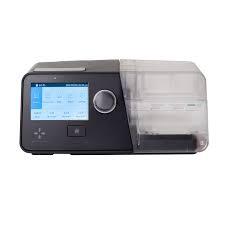The healthcare landscape is evolving rapidly thanks to advancements in technology. One of the most significant innovations is the rise of Virtual Medical Assistants (VMAs). These AI-powered tools are transforming patient care by enhancing accessibility improving efficiency and personalizing healthcare experiences. This article delves into the profound impact of Virtual Medical Assistants on patient care highlighting their benefits challenges and future potential.
Virtual Medical Assistants
Virtual Medical Assistants are sophisticated software applications designed to assist healthcare professionals and patients. They can perform a variety of tasks, such as scheduling appointments providing medication reminders answering common medical queries and even offering preliminary diagnoses based on patient inputs. By leveraging natural language processing (NLP) and machine learning algorithms VMAs facilitate smoother communication between patients and healthcare providers.
Enhancing Accessibility
One of the most notable impacts of VMAs is their ability to enhance accessibility to healthcare services. For many patients particularly those in rural or underserved areas accessing medical care can be challenging. VMAs bridge this gap by providing a platform for patients to seek information and assistance without the need to visit a clinic physically.
1. 24/7 Availability
VMAs are available round the clock, enabling patients to obtain medical information and support at any time. This constant availability is particularly beneficial for those who may work unconventional hours or have mobility issues. Patients can ask questions manage appointments and receive reminders about medications or follow-ups without waiting for office hours.
2. Reducing Barriers to Communication
For non-English speakers or those with hearing impairments VMAs can be programmed to communicate in multiple languages and provide information in accessible formats. This inclusivity ensures that all patients can access the healthcare services they need fostering a more equitable healthcare environment.
Improving Efficiency
Efficiency in healthcare is crucial for better patient outcomes. VMAs streamline numerous administrative tasks allowing healthcare providers to focus more on direct patient care.
1. Automating Routine Tasks
VMAs can handle a wide range of routine tasks, such as appointment scheduling patient triage and insurance verification. By automating these processes, healthcare facilities can reduce the administrative burden on staff minimize wait times for patients and improve overall operational efficiency.
2. Data Management
VMAs are also capable of collecting and managing patient data effectively. They can track health records, monitor patient compliance with treatment plans and even provide reminders for preventive care services. This data-driven approach enables healthcare providers to make informed decisions ultimately leading to better patient care.
Personalizing Patient Experiences
Personalization is key to improving patient satisfaction and outcomes. VMAs contribute significantly to creating tailored healthcare experiences for patients.
1. Customized Health Recommendations
Using AI algorithms VMAs can analyze a patient’s health history and preferences to provide personalized health recommendations. they can suggest dietary changes exercise regimens or wellness programs based on individual health profiles. This level of personalization encourages patients to engage more actively in their health management.
2. Enhanced Patient Engagement
VMAs facilitate better patient engagement through interactive communication. They can send personalized messages educational materials, and health tips directly to patients. This continuous interaction helps keep patients informed and motivated leading to improved adherence to treatment plans.
Challenges and Limitations
Despite their numerous benefits, the integration of Virtual Medical Assistants into patient care is not without challenges.
1. Privacy Concerns
One of the primary concerns surrounding the use of VMAs is patient privacy. Handling sensitive health information requires stringent security measures to prevent data breaches and unauthorized access. Healthcare providers must ensure compliance with regulations such as HIPAA to protect patient confidentiality.
2. Dependence on Technology
While VMAs can enhance patient care, an over-reliance on technology may lead to diminished human interaction in healthcare settings. Patients may prefer personal connections with their healthcare providers and it’s essential to strike a balance between technological assistance and human touch.
The Future of Virtual Medical Assistants
As technology continues to advance, the future of Virtual Medical Assistants looks promising. Innovations in AI, machine learning, and data analytics will likely enhance the capabilities of VMAs, making them even more integral to patient care.
1. Advanced AI Integration
The integration of advanced AI technologies will enable VMAs to provide more accurate diagnoses and treatment recommendations. As these systems learn from vast amounts of data, they will become increasingly proficient at identifying health trends and predicting potential issues.
2. Expanded Roles in Telehealth
With the rise of telehealth services, VMAs will play a crucial role in facilitating virtual consultations. They can assist in preparing patients for telehealth appointments, ensuring that all necessary information is readily available for healthcare providers.
Summary:
The impact of Virtual Medical Assistants on patient care is multifaceted and transformative. By enhancing accessibility, improving efficiency, and personalizing patient experiences, VMAs are reshaping the healthcare landscape. While challenges such as privacy concerns and reliance on technology must be addressed, the potential for VMAs to improve patient care is immense. As healthcare continues to evolve, embracing these digital innovations will be key to delivering high-quality, patient-centered care in the future.









